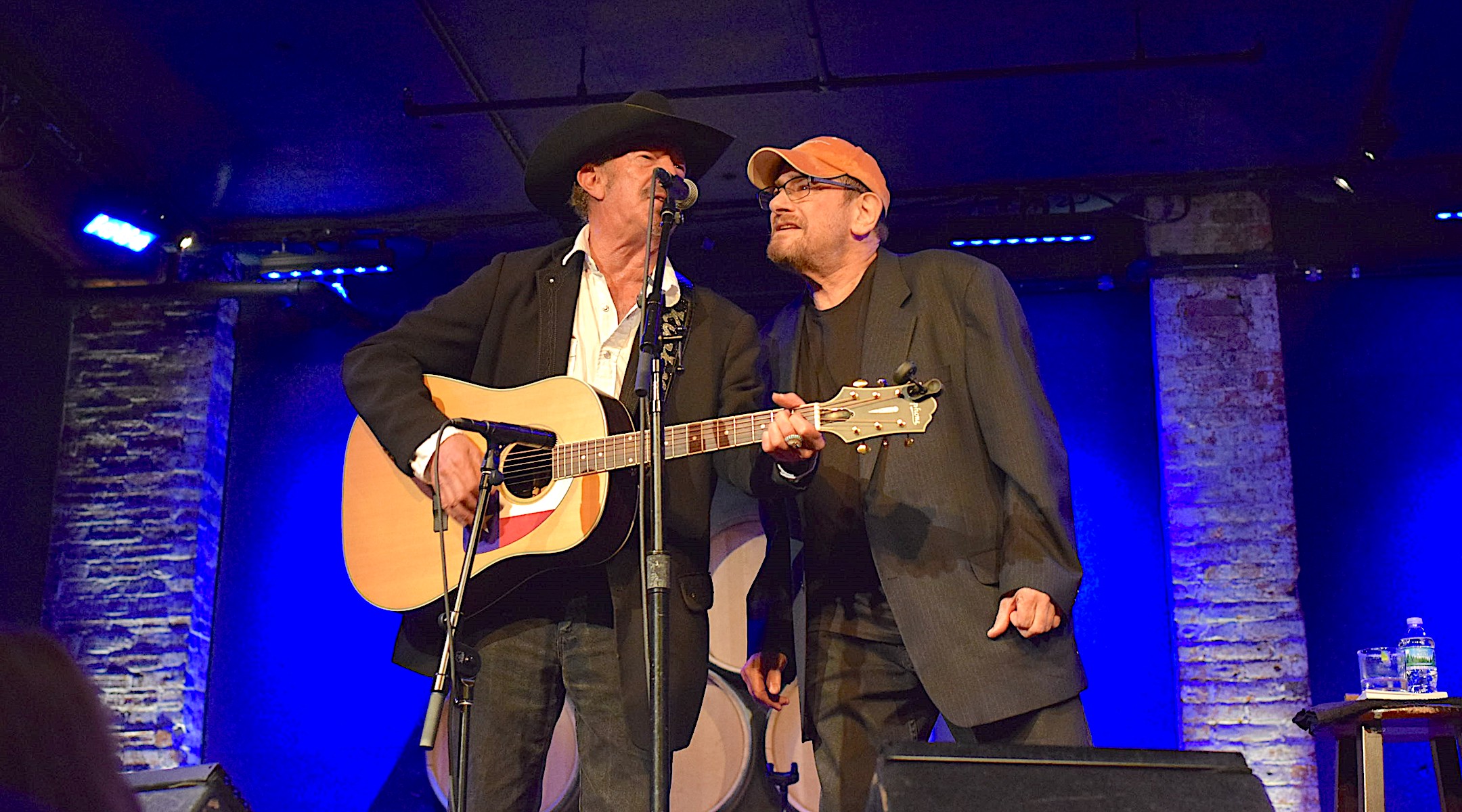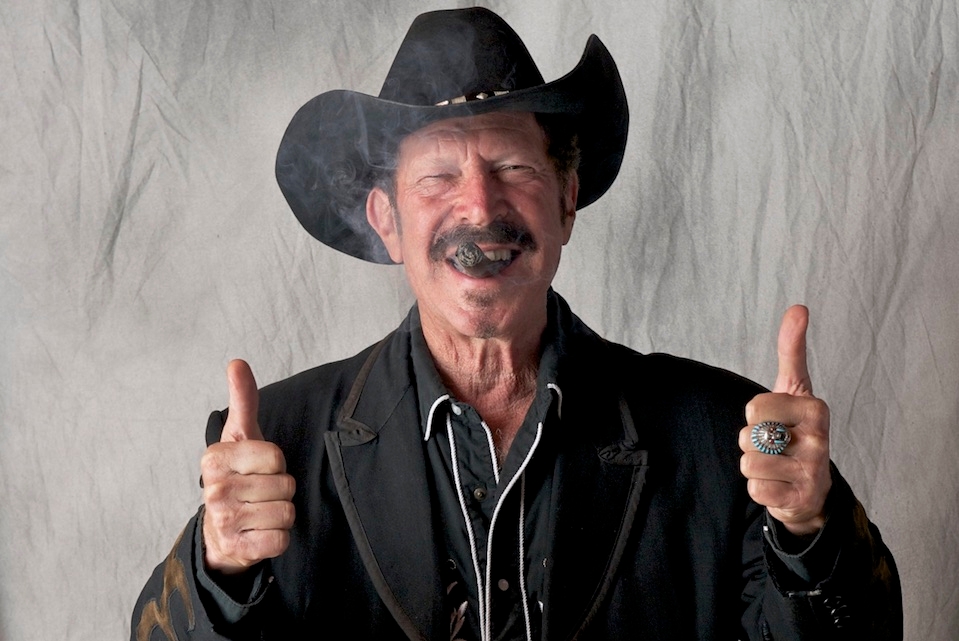Kinky Friedman, the cigar-chomping, mustachioed Texas country singer and crime writer whose work often seemed like the unkosher marriage of the Borscht Belt and the Bible Belt, died June 27 from complications of Parkinson’s disease. He was 79.
As frontman of the flamboyant ’70s country group Kinky Friedman and the Texas Jewboys, he was notorious for satirical songs such as “They Don’t Make Jews Like Jesus Anymore,” a raucous parody of racism, and “Get Your Biscuits in the Oven and Your Buns in Bed,” which mocked feminism.
He could also get serious, writing songs that tackled social issues like abortion and commercialism. His 1973 song “Ride ’em Jewboy” is a haunting elegy to the Holocaust, recorded by Willie Nelson and sung in concert by Bob Dylan. The lyrics turn cowboy cliches into a meditation on Hitler’s victims:
Now the smoke rises from the camps
See the helpless creatures on their way
Hey, old buddy, isn’t it surprising
How far can you go before you stay?
The Jewboys broke up in the mid-1970s, and Friedman spent much of the next decade high on drugs. He got clean in the mid-1980s and began writing a series of successful, raunchy, comic crime novels starring himself. He wrote more than 20 books, all on a typewriter.
One reviewer, actress and author Fannie Flagg, described his writing style as “Raymond Chandler on drugs, if Chandler had had a great sense of humor.”
In 2006, he ran for governor of Texas to unseat incumbent Republican Rick Perry. His campaign materials included a 13-inch-diameter talking action figure and bumper stickers that read “My Governor is a Jewish Cowboy.” His official campaign slogan was “Why the Hell Not?” He considered himself a hardline anti-immigration, pro-choice, anti-death penalty, and supporter of alternative fuels.
Over time, his campaign gained momentum and seriously aimed at shaking up Texas politics, dismantling traditional party apparatuses and reaching out to a dramatically disaffected electorate.
“In the last gubernatorial election, only 29 percent of eligible voters turned out to vote,” Friedman, known as “the Kinkster,” told the Jewish Telegraphic Agency this year. “Seventy-one percent didn’t vote – they didn’t like the choice between paper and plastic.”
Friedman ultimately finished fourth in the six-candidate race, receiving 12.6% of the vote.

Nathan “Chinga” Chavin (right) and Kinky Friedman appear together in an undated photo. The two were fraternity brothers at the University of Texas. (Courtesy of Brandi Chavin)
He was born Richard Samet Friedman in Chicago in 1944. He moved to Texas with his parents as a baby and received his nickname in college because of his curly hair. His parents were educators and ran a summer camp for mostly Jewish children at Echo Hill Ranch, the 400-acre estate where Friedman lived in a small but sprawling lodge.
“We had church services every Friday night, and Kinky played guitar,” Ellen St. Clair, who spent four summers at Echo Hill, told JTA in 2006.
The property is also home to Utopia Animal Rescue Ranch, a home and adoption center for abused and abandoned dogs that Friedman co-founded.
He attended the University of Texas at Austin, where he studied psychology. Friedman proudly recalled that he and a friend, Nathan “Chinga” Chavin, had attempted to admit African-American students during their time as members of the Jewish fraternity Tau Delta Phi, an effort that was ultimately thwarted.
After graduating in 1966, he served in the Peace Corps in Borneo. After returning from the Peace Corps, he formed Kinky Friedman and the Texas Jewboys at a time when hybrid “country-rock” bands – including The Band, the Eagles and Buffalo Springfield – were rising on the charts. The Jewboys attracted a cult following – and occasional protests, such as when the National Organization for Women awarded Friedman its “Male Chauvinist Pig Award” in 1973.
In early 1976, he accompanied Dylan on the second leg of the Rolling Thunder Revue tour. Friedman claimed to be the first “full-blooded Jew” to step on the stage of the Grand Ole Opry.
Friedman named Mark Twain and humorist Will Rogers as his heroes, and the inevitable comparisons were not far-fetched.
“Today,” he once said, “there are many people all over the world who listen to the songs that made me notorious and read the books that made me respectable.”




